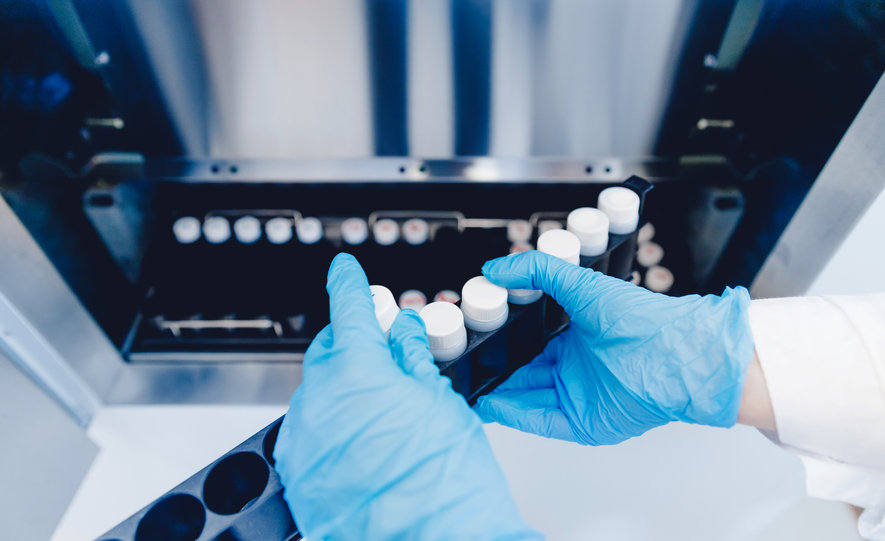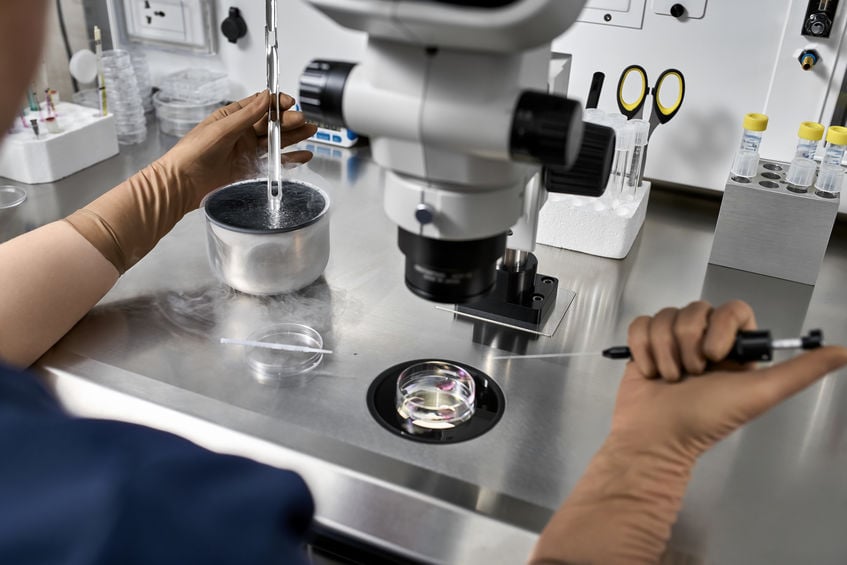How Common Is Male Infertility?
Conversations around infertility almost always focus exclusively on women. An emphasis is placed on a woman’s age, egg quality, weight, and other underlying health conditions or genetic factors which could make conception difficult. But considering that sperm is needed to conceive successfully, male infertility is also an issue. One-third of all infertility cases in the United States are solely attributed to male reproductive problems. When should a man facing fertility troubles consider requesting donor sperm?

The importance of semen quality
Infertility tests often focus on egg quality and overall reproductive health for women. Men will face similar testing but with different metrics. A specialist will review a man’s sperm quality through what’s known as a semen analysis. The test checks for quantity and quality and if any abnormalities are present in the fluid. Other analyses can include hormone, genetic, post-ejaculation urinalysis, and physical exams such as ultrasounds and testicular biopsies.
If physical impairments are present
Even if sperm quantity and quality are optimal, physical abnormalities can impact a man’s ability to get a woman pregnant. For example, if there’s a high presence of sperm in the urine, specialists will know that the sperm travels backward into the bladder rather than being ejaculated. Likewise, testicular or prostate blockages can also cause physical barriers that make conception more difficult. If the above conditions are present, opting for donor sperm might ensure a couple is more likely to become pregnant.
When sperm quality is an issue
One of the most vital concerns for male fertility is sperm quality. The semen must have enough sperm present to increase the odds of successfully conceiving. But quantity alone is not enough. The individual sperm can be misshapen or have poor motility, which means that the sperm struggles to swim, decreasing the chances of pregnancy.
Health and genetic conditions
For some men, other health conditions can also directly impact fertility. Common concerns usually center around pre-existing conditions or behavioral choices. Heavy tobacco, alcohol, or illicit drug use can negatively impact sperm health, leading to potential infertility. Similarly, ongoing health conditions such as a hormonal imbalance or an autoimmune disorder can cause abnormal sperm. If a man undergoes carrier screening and discovers genetic abnormalities, which might increase the potential for hereditary diseases to manifest in a baby, donor sperm might be a viable alternative.
Choosing donor sperm
Infertility is a delicate issue that must be handled with care. Not all men with infertility need to rely on donor sperm to conceive with a partner successfully. In many cases, lifestyle changes or medical interventions can help control or even reverse some infertility causes, allowing a man to father a child successfully. Before deciding whether to use donor sperm, couples should speak with a fertility specialist to determine if infertility is an issue and the best course of action.





